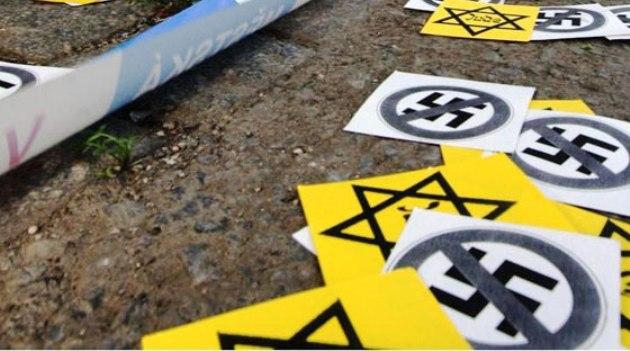Manifestations of anti-Semitism in Czech on the internet doubled during 2013 compared to 2012. That is the conclusion of an annual report about anti-Semitism in the Czech Republic published by the Jewish Community in Prague.
The number of physical attacks against Jewish targets, whether persons or property, has essentially not changed compared to previous years, and the Czech Republic is still a country where anti-Semitism is not present in most of society or the political sphere, the report finds. Last year continued a trend from 2011 in which right-wing extremists significantly increased their online activity.
Last year staffers of the Jewish Community recorded 156 anti-Semitic online texts, videos and websites compared to 82 in 2012; since 2009, when only 28 such materials were found online, the number has more than quintupled. The Jewish Community noted three attacks committed with an anti-Semitic motivation against property and one against a person involving the mental and physical harassment of a Jewish pupil at a high school in Přelouč.
In 2012 there were six attacks against property and no attacks against people recorded. Data about the number of incidents of harassment and threats have not changed.
The Jewish Community publishes the report annually. "The report on manifestations of anti-Semitism warns us of disturbing elements, but overall it suggests that Czech society does not positively accept or tolerate anti-Semitism," said Eva Lorencová, first vice-chair of the Jewish Community Center in Prague.
The report says the year-on-year growth in the manifestation of anti-Semitism online could be related to the overall disintegration of the right-wing scene and to increased internet access. Lorencová said the rising number of incidents of cyber-harassment is disturbing.
The online displays most often are either of a classic, racialized, anti-Semitic nature or that of conspiracy theories discussing the control of the "system" or the world by Jews and institutions controlled by them. The authors of the report place this growth in hate speech in the context of the "pro-Israeli policy" of the Czech Government, as well as in the context of how some members of the majority perceive economic and social problems.
In comparison with France or Hungary, where displays of hatred against Jews are established in public life as well, the situation in the Czech Republic is calm. However, the report says the rise in the number of populist political parties in the Czech Republic using nationalist, radical rhetoric is a danger.
The report also found that while anti-Semitism in the Czech Republic can be considered a fringe phenomenon, that is not the case when it comes to displays of hatred for Romani people. The authors monitor and evaluate these incidents according to the procedure for identifying anti-Semitism established by the EU Fundamental Rights Agency.
The Jewish Community’s statistics, therefore, differ from the numbers kept by the Czech Police Presidium, which only counts incidents that rise to the level of felonies. The full report is available on the website of the Jewish Community in Prague.
